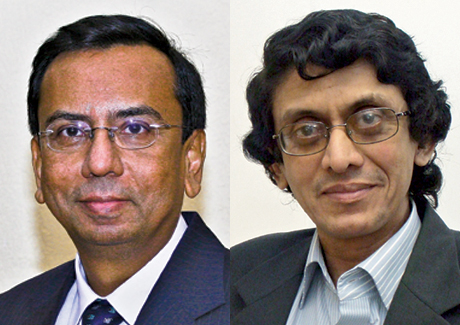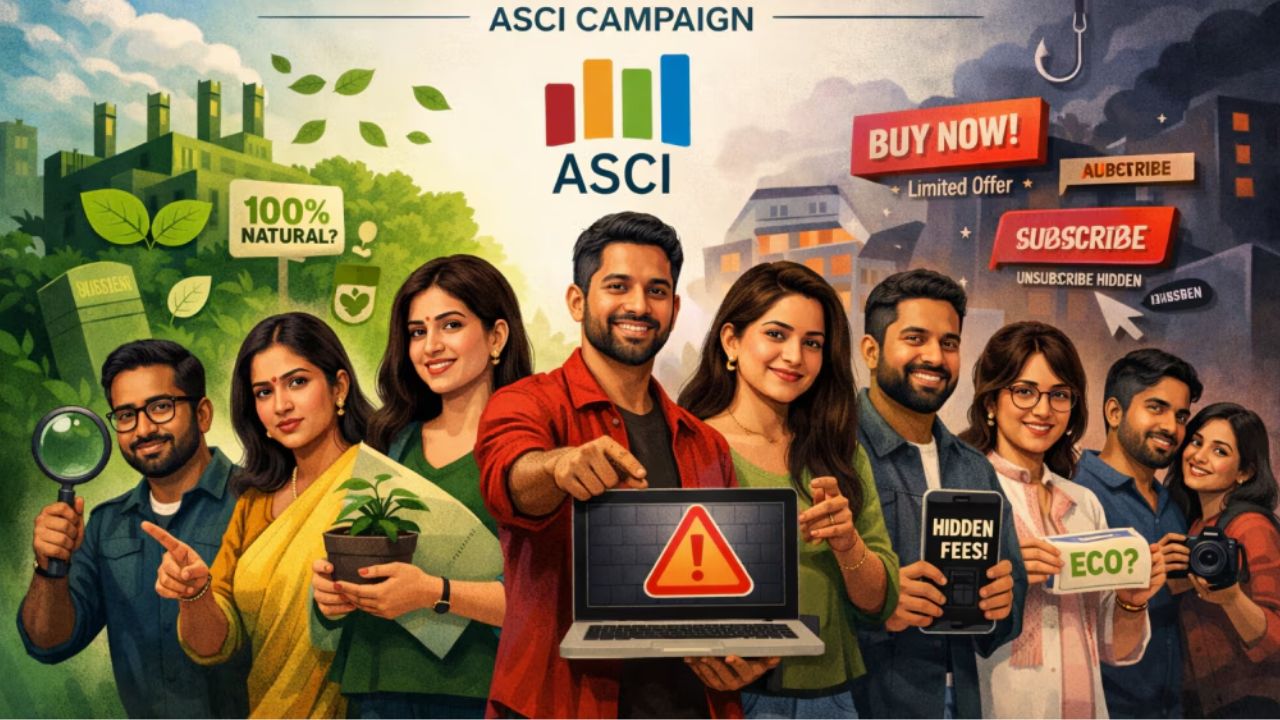Is self regulation sufficient for advertising?
Partha Rakshit, chairman, ASCI and proprietor, Partha Rakshit Associates (PR): Self regulation of ad content is a global norm. There are more than 70 countries in which a Self Regulatory Organisation (SRO) is effectively regulates ad content. In many countries the Government regulator works with SRO. For example, in the UK, OfCom the TV content regulator has authorised the UK SRO, ASA, to regulate ad content on TV. In India under the Cable TV Act’s rules no advertising which violates the ASCI code can be shown on TV. Global trend and even in India the trend is that the Government and SRO together work in sync co-regulating ad content with primary responsibility with the SRO.
Anand Halve, co-founder, Chlorophyll (AH): Let’s start with ‘what is self-regulation’? It’s like stopping your friend from picking up an unattended wallet and telling him that the police could take action on him. Me warning him as a friend instead of the cops taking action on him – this in a simple example, is self regulation.
For self-regulation to work though, you must give the self-regulation body enough teeth. Otherwise it isn’t ‘regulation’ it is at best, ‘suggested action’
If you look at the ASCI record over the years – you see the same companies doing the same thing again and again. I used to be part of ASCI and CCC, we would send out letters to some of these companies – but no one would even reply. Without having the power and authority to take punitive steps, there’s nothing ASCI can really do.
Another issue: The meaning of regulation – depends on what you think is admissible or not admissible in the ‘larger interest’. But who’s defining the larger interest? All forms of censorship in my view (barring very few), should not be regulated. People will be agitated if they find it (an ad) sufficiently objectionable and will write to the company, file complaints, etc. and it’ll eventually be taken off. If they do not respond like that, it is because it’s not bothering them enough. You have to leave it to the world to decide if they find something (in this case an ad) offensive or unacceptable. If the world at large is not sufficiently enraged, who is this body of seven and a half people to act on their behalf?
Stuff like ‘do not show women wearing bikinis’ or ‘do not show people riding motorbikes and performing wheelies’ can be considered ‘objectionable’ by someone. We’ve already created these idiotic situations of a smoking shot in a film on TV accompanied by a warning, or a commercial of a bike coming with a ‘stunts performed by experts, and you should not copy this’. A guy who buys a motorcycle is not looking to ride it at 30 kmph. It’s like asking people to not have any flavoured drinks and only drink Cod Liver Oil. Too often, there seems to be a view that is basically saying ‘do not show people having fun’.
With brands hitting social media, there have been instances where objectionable content has reached the consumer. What can be done in such instances?
PR: ASCI sees social or online media as no different than conventional media like press and TV. And processes complaints against ads in online media just like for TV and print. Two major online media owners, Google and Yahoo, are already members of ASCI and therefore buy into self regulation through ASCI. When a complaint against an online media is upheld then the same is modified or withdrawn as in print and television by the advertiser.
AH: If the consumers are agitated enough, they’ll do something. In fact on social media, any company running an ad that offends people will know at internet speed that they are pissing off people, and be forced to change!
Why is there a poor instance of complaints being registered, despite conscious efforts by ASCI to invite complaints? Is it true that most complaints emerge from competition, rather than from consumers?
PR: This is not a fact. Complaints against number of ads processed by ASCI has increased from 176 in 2011/12 to788 in 2012/13 to 1944 in 2013/14. Competitor ie company generated complaints against ads are only 5 per cent of total ads processed by ASCI in 2013-14. Rest are either through NAMS or made by consumers.
AH: Ninety-nine per cent of humanity is indifferent to most things that go on. You think people wake up in the morning and worry about what some Minister is saying – of course not. If they get sufficiently agitated they’ll take them on.
What explains the consistently high incidence of complaints in categories like health and wellness, and education? Should there be more stringent steps for such categories with high incidence of violation of the ASCI code?
PR: The main reason for educational ads violating ASCI guidelines is promise they make in ad of 100 per cent placement on passing out of the institute. Mostly this claim is not substantiated and even if it can be on past data, it cannot be accepted as guarantee for the future. Post follow up by ASCI, incidences of 100 per cent placement promise in ads are getting reduced. Health care ads mostly violate provisions of Drug & Magic Remedy Act by claiming treatment of ailments such as impotency, obesity, height increase, diabetes, cancer etc. which per the Act are not allowed to be advertised. These ads appear mostly regional press released by local or small clinic or manufacturer. ASCI now reports non-compliance of its order on health care ads to the Drug Controller General of India (DCGI) and Medical Council of India (MCI) for taking action as per the law.
AH: There is an area where you’re telling blatant lies and therefore misleading people into a false promise which is not deliverable. Unfortunately this happens most often in these categories. You have institutes saying stuff like join us and you’ll get an assured well paying job – this is completely not okay because you’re not an employer and you can’t offer a job. This takes advantage of the vulnerable position of the person and misleads him. There is a criminal procedure code that exists in our country. If any act can be described as violating the criminal act, ban it. What I described above falls under this.
About health and wellness, there’s already the Drugs and Magical Remedies Act. If anything is violating this act, it shouldn’t be permitted in communication.
The communication is a reflection of an action, and if the action is prosecutable under existing laws, then it shouldn’t be permitted. Other than that it shouldn’t be touched. This could make it objective: if this is an act of cheating under 420, then don’t show it. But under what code are you going to say don’t show kissing in advertising? What’s the crime being committed? So, I’m simply saying that if there’s a law saying something is a crime, and the communication is committing the crime (e.g. cheating which is a crime under Section 420), then you should stop it. Otherwise you have no business interfering.
Is there a case for pre-screening of ads, like films? What are the pros and cons of such an extreme step?
PR: That’s impossible to do. There are 45,000 new print and 1,600 new TV ads released every month on an average. Add to this new outdoor, radio and online ads released, which then could add upto over a lakh new ads released every month. It is not physically possible for even an army of regulators to pre-clear these number of ads. Nowhere in the world all ads are pre-cleared.
AH: Of course not. Who’s to decide that the screener has any brains.
Should the government / a government agency get involved at all? What could be the fall out of such a step?
PR: Government should let primary evaluation of a complaint against an ad be done by ASCI and only on non-compliance of its upheld complaint decision by the advertiser, the Government should act as per the law of the land. This is the model practiced by Governments in UK and other developed countries. In India too, the Ministry of Information & Broadcasting sends complaints they get to ASCI first and on reported non-compliance by ASCI they take action as per the Cable TV Act.
AH: I’m completely against all forms of Government interference. There’s an old quote – ‘That Government is best, which governs the least’. The Government is currently running airlines that make Rs 5,000 crore losses ever year, hotels that have been driven into the ground and can’t deliver water and decent roads. Our Government is in the complete pits and has been so for most of the past 65 years. Anything it touches turns into cow dung.
I am against censorship, except where something is violating a law. The other option is to turn into a China and control everything.




